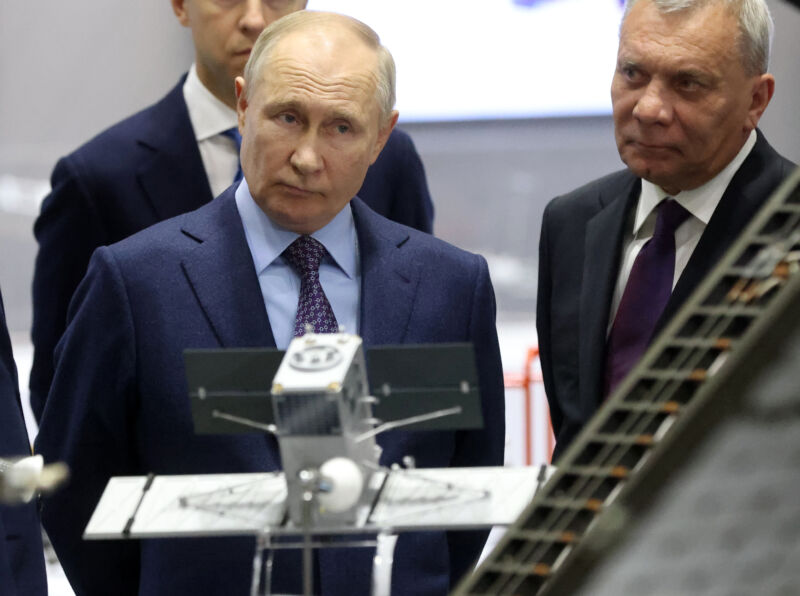Russia has a plan to “restore” its dominant position in the global launch market

Enlarge / Russian President Vladimir Putin (L) and Roscosmos Space Corporation Chief Yuri Borisov peruse an exhibit while visiting the Korolev Rocket and Space Corporation Energia, October 26, 2023, in Korolev, Russia. (credit: Contributor/Getty Images)
It has been a terrible decade for the Russian launch industry, which once led the world. The country's long-running workhorse, the Proton rocket, ran into reliability issues and will soon be retired. Russia's next-generation rocket, Angara, is fully expendable and still flying dummy payloads on test flights a decade after its debut. And the ever-reliable Soyuz vehicle lost access to lucrative Western markets after the Russian invasion of Ukraine.
Yet there has been a more fundamental, underlying disease pushing the once-vaunted Russian launch industry toward irrelevance. The country has largely relied on decades-old technology in a time of serious innovation within the launch industry. So what worked at the turn of the century to attract the launches of commercial satellites no longer does against the rising tide of competition from SpaceX, as well as other players in India and China.
Through the first quarter of this year, Russia has launched a total of five rockets, all variants of the Soyuz vehicle. SpaceX alone has launched 32 rockets. China, too, has launched nearly three times as many boosters as Russia.